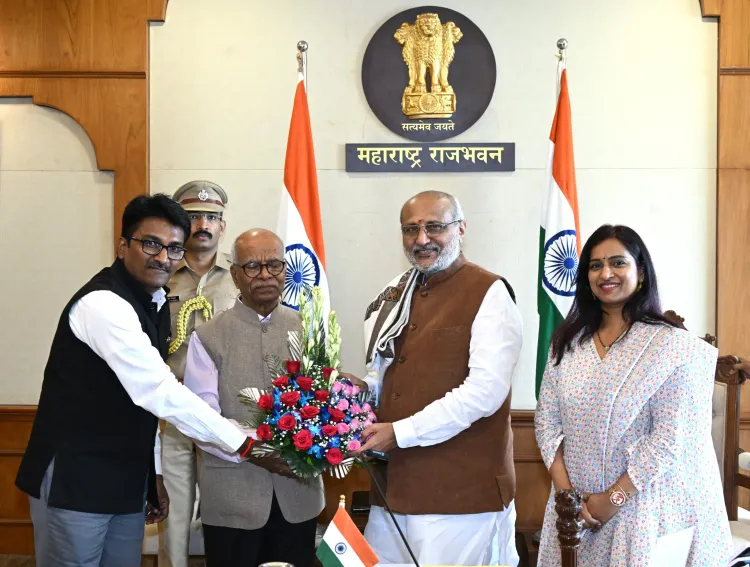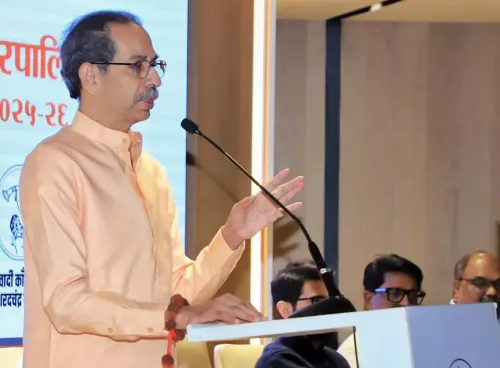Does RSS Truly Embody Inclusivity Rooted in Sanatan Dharma?

Synopsis
Key Takeaways
- RSS is rooted in core values of inclusivity.
- Governor Radhakrishnan emphasizes equality and service.
- Contributions of RSS volunteers during crises are noteworthy.
- Challenges faced by the RSS over a century include two bans.
- Prime Minister Modi exemplifies RSS's dedication to service.
Mumbai, June 20 (NationPress) Addressing what he termed a misleading notion that the Rashtriya Swayamsevak Sangh (RSS) is solely an upper caste organization, Maharashtra Governor C.P. Radhakrishnan emphasized that the RSS has consistently represented inclusivity, deeply rooted in the fundamental principles of Sanatan Dharma—which are equality, service, and unity.
The Governor made these remarks during the launch of the book titled 'Why Are We in the RSS?' authored by ideologue and RSS pracharak Ramesh Patange at the Raj Bhavan.
Praising Patange for releasing a book in the centenary year of the RSS, Governor Radhakrishnan acknowledged the author's effort in debunking, with well-researched facts and logical arguments, the politically driven myth that the RSS is an upper caste organization.
He pointed out that since its establishment in 1925, the RSS has transformed into a globally respected organization, with branches in several countries.
The Governor also highlighted that RSS volunteers have continually stepped up to serve the nation during crises, such as earthquakes, floods, droughts, and railway mishaps throughout India.
Reflecting on the organization's 100-year journey, he recognized that the RSS has encountered various challenges, including two bans—one following the tragic assassination of Mahatma Gandhi.
Nevertheless, he stated that the commitment of thousands of swayamsevaks and pracharaks has kept the organization robust and dynamic.
He commended RSS workers for promoting emotional unity between the Northeastern states and the rest of India.
The Governor also noted that Prime Minister Narendra Modi, a former pracharak, represents the ethos of selfless service inspired by the RSS.
Under the Prime Minister's leadership, India not only provided free Covid-19 vaccinations to its populace but also assisted other nations through vaccine exports.
Among those in attendance were Ashwin Ranjaniker, the translator of Patange's original Marathi book 'Aamhi Sanghat Ka Aahot'; Secretary to the Governor Prashant Narnaware; and other dignitaries.
Saptahik Vivek published the book to mark the centenary of the RSS.
The book features a foreword by RSS Chief Mohan Bhagwat, as stated by the Raj Bhavan.










